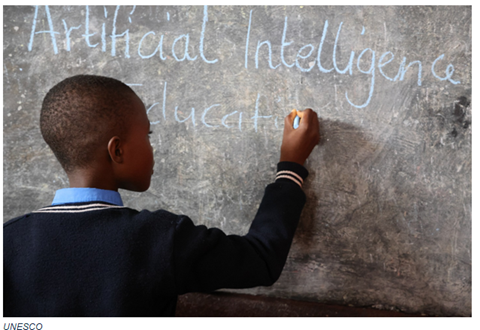
GCED Basic Search Form
Quick Search
현재 위치
뉴스

Data fills our lives. Having accurate, timely, inclusive and open data enables us to properly evaluate the current state of the world and to determine how best to move forward, improving people’s lives.
The SDGs journey is half-way through and only six years remaining until touchdown.
Where are we to achieve UNESCO-related SDGs, and especially in terms of realizing the hope of a world where education systems that foster quality inclusive education and promote lifelong learning opportunities for all are in place all over the globe?
As the United Nations High-level Political Forum, is happening as we speak, from 8 to 17 July 2024 themed “Reinforcing the 2030 Agenda and eradicating poverty in times of multiple crises: the effective delivery of sustainable, resilient and innovative solutions”, UIS is best placed to track the progress on the actions, daily undertaken by the Institute, to provide substantive, reliable, transparent, accessible and relevant data to fulfill the commitment to achieve the sustainable development goals, our roadmap to 2030.
As custodian of SDG4, UNESCO Institute for Statisticsensures that official and trusted source of internationally comparable data on education, sciences, culture and communication are produced, thus fueling the policies and investments needed to transform lives and propel the world towards its development goals.
While highlighting that nearly half the 17 targets are showing minimal or moderate progress, there is some hopeful news in terms of progress towards Goal 4, shared in the newly released Sustainable Development Goals Report 2024.
Here’sthe good news:
- Primary school completion rate between 2015 and 2023 increased from 85 to 88 percent, the lower secondary completion rate, from 74 to 78 percent, and the upper secondary completion rate, from 53 to 59 percent. However, only two in three children in Sub-Saharan Africa complete primary school on time;
- In upper secondary schoolcompletion rate, the Eastern and South-Eastern Asia has been the fastest growing region, with the completion rate climbing from 63 percent in 2015 to 74 percent in 2023;
- In the upper secondary level, girls hold a notable advantage, with a 14 percentage-point gap in Eastern and South-Eastern Asia, 8 points in Latin America and the Caribbean, and 4 to 5 points in most other regions. The regional disparities underscore the need for targeted efforts to achieve equal educational opportunities for all children.
However, much concerted efforts and collective action need to be taken:
- To counter the global decline of both mathematics (by 15 points) and reading performances (by 10 points), mostly due to the profound impact of the COIVD-19 pandemic on global education;
- Data shortfalls have been identified, especially in tracking learning outcomes in early education;
- Pre-primary education has stagnated since the SDGs were agreed. Seven out of 10 children globally attended organized learning one year before the official entry age in 2022, a rate unchanged since 2015.
Relevant weight has been given to greening education and having trained and qualified teachers, able to enlighten and guide the generations of tomorrow.
School subjects, such as climate change and sustainability education have been found relevant, but missing, in ninth grade science and social science curricula.
Teachers need additional training, particularly in Sub-Saharan Africa, where enrolment growth outpaces teacher hiring. Inconsistency in national teacher qualification standards further obstructs progress.
The Sustainable Development Agenda is a moment of great opportunity despite the multiple interlinked crises in the world. SDG4 is of critical importance to allow countries to be on track to deliver on the promise of a quality education for all. Acceleration on the implementation of the 2030 agenda is our responsibility, holding governments accountable for the provision of good quality data. Many countries are advancing, but we need to do more to make sure everyone is on board and committed.
As UN Secretary General Antonio Guterres pointed out at the opening of the high-level political forum on 8 July 2024 “this is a once-in-a-generation opportunity to mend eroded trust and demonstrate that international cooperation -human solidarity in the face of opportunity but also threats – can carry us forward”.
Let’s do more, Together.
URL: https://uis.unesco.org/en/news/data-tell-the-stories-our-lives-starting-from-education
